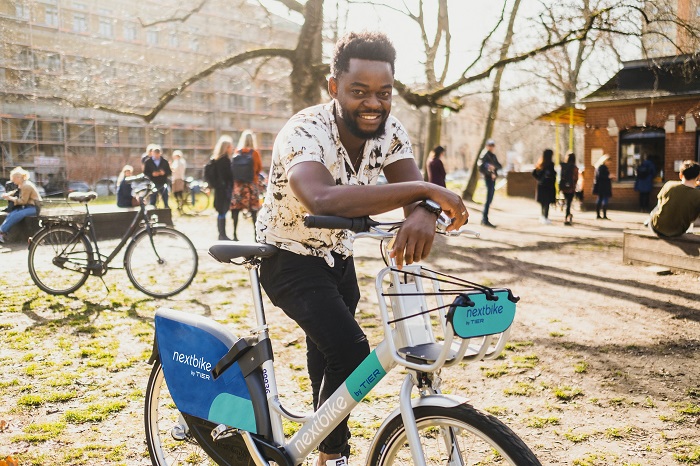
Persuading businesses and people to reduce climate emissions is key to slowing climate change – research-based techniques and new approaches from the behavioral sciences can show how to do it.
The Intergovernmental Panel on Climate Change in 2022 emphasized that changes to lifestyles and behavior have the potential for large reductions in global greenhouse gas emissions. These changes – from using more mass transit to ensuring homes and offices are made more energy-efficient
– have the potential to help reduce greenhouse gas emissions 40%-70% by 2050. But to achieve these large reductions, policies are needed to help drive individual change, often through government or businesses.
But research in social and behavioral science for the best solutions has been lagging behind communication of climate and the physical science of it. It’s one reason some members of the public believe that individual actions won’t have any meaningful impact.
The Social Science Research Council, The Conversation and Sage convened a meeting at The Rockefeller Foundation on June 9, 2023, to discuss the potential for cost-effective and scalable behavioral interventions to reduce harmful climate emissions. The daylong session, which was attended by policymakers, leaders of philanthropic and nonprofit organizations, journalists, and social and behavioral scientists, featured numerous examples of how governments and businesses can apply behavioral science to achieve large-scale changes.
The discussion of the relationship between human behavior and climate change consisted of three panels and six speakers. Below are highlights of their work.
Electrification and incentives
Speakers
Karen Palmer, Senior Fellow at Resources for the Future.
Casey Wichman, Assistant Professor of Economics at Georgia Institute of Technology.
Moderator: Camille Gamboa, Associate Vice President of Corporate Communications at Sage
Wichman, Palmer and colleagues partnered with Ecobee, a smart-thermostat company, to automate thermostats in homes where people were usually home during the day. The experiment raised indoor temperatures and reduced air conditioner use during the afternoon, usually a time when energy costs were high. Despite the temperature rising above a household’s preferred temperature, customers rarely overrode the automated feature, suggesting they were willing to experience some discomfort to save money.
In her talk, Palmer explained that electrification offers a promising path to reduce emissions, but more research is needed to better understand challenges – such as how to ensure electric car charging stations are more reliable – and to come up with solutions, such as having homes use electricity more when electricity is abundant and prices are low.
To reduce greenhouse gases significantly, Wichman said, the U.S. needs the right incentives to inspire such behavioral changes as reducing water use. He also explained that, while encouraging the electrification of homes and vehicles is important, there must also be policies that promote clean electricity and discourage high-emissions behaviors.
Individuals matter in culture shifts
Speakers
Erica Myers, Associate Professor of Economics and Canada Research Chair in Environmental, Energy and Resource Economics at the University of Calgary.
Andrew Hoffman, Holcim Professor of Sustainable Enterprise at the University of Michigan.
Moderator: Beth Daley, Executive Editor of The Conversation US.
In her talk, Myers discussed a study she and her colleagues conducted in Illinois that gave contractors bonuses tied to how well they weatherized a home, measured by how airtight the house was. The bonus system increased the airtightness of the home dramatically.
Hoffman identified policies needed to lower climate-warming emissions, including reducing corporations’ emissions and giving nature, such as rivers, legally enforceable rights.
Corporations sparking large-scale change
Speakers
Michael Greenstone, the Milton Friedman Distinguished Service Professor in Economics at the University of Chicago.
John List, the Kenneth C. Griffin Distinguished Service Professor of Economics at the University of Chicago and Chief Economist at Walmart.
Moderator: Anna Harvey, President of the Social Science Research Council.
Greenstone presented evidence from a study in India that developed permits for industrial plants to release pollution in a large Indian city. Plants could trade the permits among one another to meet emission requirements, with those who polluted more buying permits from those who polluted less. The study showed that the system helped reduce pollution by 20% to 30% compared with plants that were not in the system.
List discussed an experiment conducted with Virgin Atlantic to address carbon emissions. It reduced excessive fuel load and changed flight patterns and engine use during landings to cut emissions. The result saved 700 tons of fuel, reduced delays and increased job satisfaction among Virgin Atlantic employees.![]()
Kira Barrett, The Conversation
Kira Barrett, Editor, The Conversation
This article is republished from The Conversation under a Creative Commons license. Read the original article.

